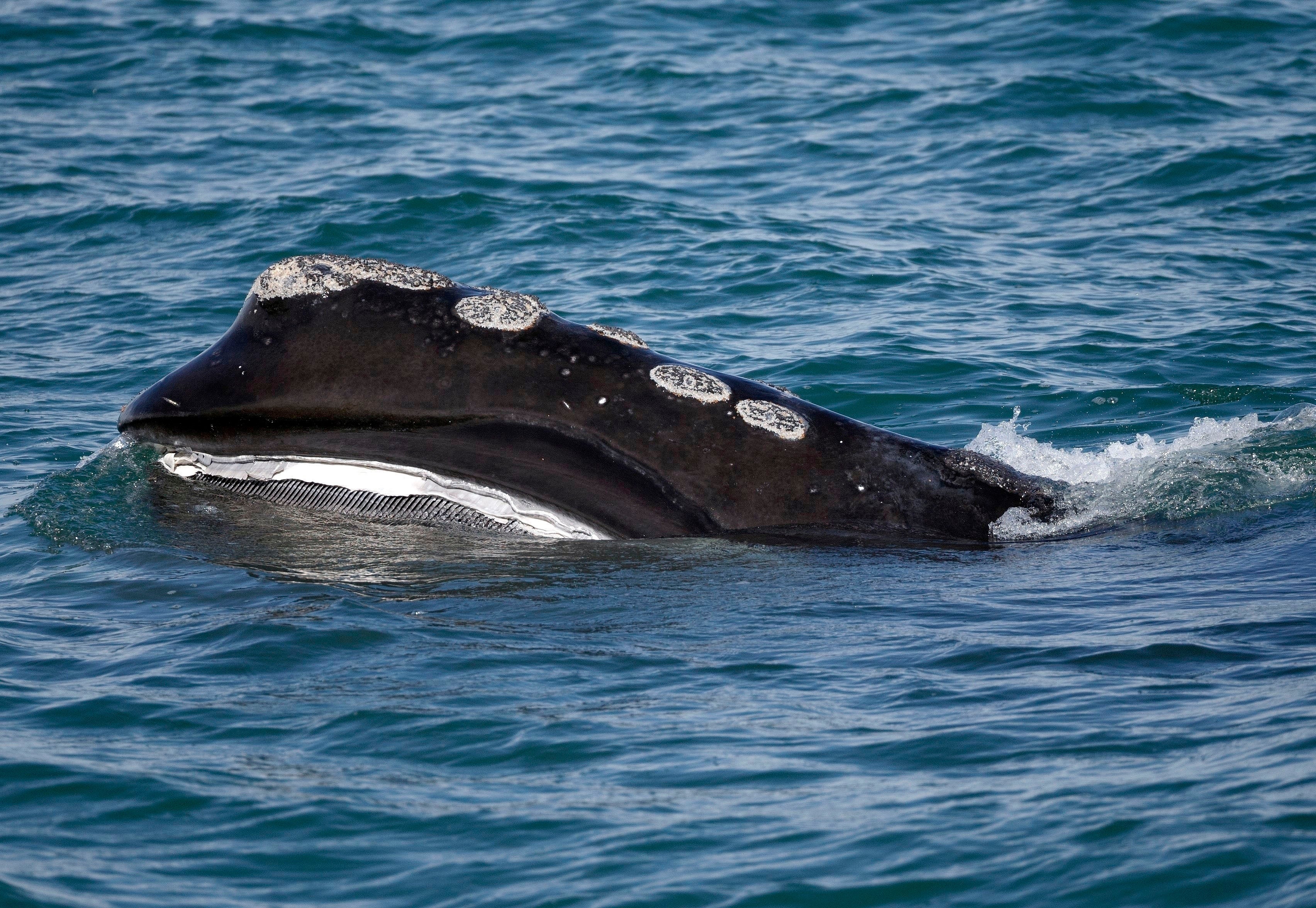Endangered whale population sinks close to 20-year low
A group of scientists and ocean life advocates says a type of whale that is one of the rarest marine mammals in the world lost nearly 10% of its population last year

Your support helps us to tell the story
From reproductive rights to climate change to Big Tech, The Independent is on the ground when the story is developing. Whether it's investigating the financials of Elon Musk's pro-Trump PAC or producing our latest documentary, 'The A Word', which shines a light on the American women fighting for reproductive rights, we know how important it is to parse out the facts from the messaging.
At such a critical moment in US history, we need reporters on the ground. Your donation allows us to keep sending journalists to speak to both sides of the story.
The Independent is trusted by Americans across the entire political spectrum. And unlike many other quality news outlets, we choose not to lock Americans out of our reporting and analysis with paywalls. We believe quality journalism should be available to everyone, paid for by those who can afford it.
Your support makes all the difference.A type of whale that is one of the rarest marine mammals in the world lost nearly 10% of its population last year, a group of scientists and ocean life advocates said on Monday.
The North Atlantic right whale numbered only 366 in 2019, and its population fell to 336 in 2020, the North Atlantic Right Whale Consortium said. The estimate is the lowest number in nearly two decades.
Right whales were once abundant in the waters off New England but were decimated during the commercial whaling era due to their high concentrations of oil. They have been listed as endangered by the U.S. government for more than half a century.
The whales have suffered high mortality and poor reproduction in some recent years. There were more than 480 of the animals as recently as 2011. They're vulnerable to fatal entanglement in fishing gear and collisions with large ships, and even when they survive, they often emerge less fit and less able to feed and mate, said Scott Kraus, chair of the consortium.
"No one engaged in right whale work believes that the species cannot recover from this. They absolutely can, if we stop killing them and allow them to allocate energy to finding food, mates and habitats that aren’t marred with deadly obstacles,” Kraus said.
The whales feed and mate off New England and Canada They then travel hundreds of miles in the fall to calving grounds off Georgia and Florida before returning north in the spring.
The whale consortium was founded in the mid-1980s by a group of science institutions including the New England Aquarium and today includes dozens of members from academia, industry, government and elsewhere.
The National Oceanic and Atmospheric Administration the arm of the federal government that monitors and regulates ocean issues, cautioned that the group's estimate is preliminary and has not yet been peer reviewed. However, the agency shares the consortium's concern about the loss of right whales, said Allison Ferreira, a spokesperson for the agency.
“North Atlantic right whales are one of the most imperiled species on the planet, and the latest estimate shows that the substantial downward trajectory of right whale abundance documented over the last decade continues,” Ferreira said.
The whales, which can weight 135,000 pounds (61,235 kilos) have been a focus of conservationists for generations. Recently, efforts to save the whales have resulted in new restrictions on U.S. lobster fishing, and pushback from the fishing industry about those new rules.
The rules are designed to reduce the number of rope lines that link buoys to lobster and crab traps, and went into effect this year. However, the rules also resulted in a flurry of lawsuits, and a federal judge ruled this month that fishermen can continue to fish until further notice in an area off the coast of Maine that had been slated for restriction from their gear.
Subscribe to Independent Premium to bookmark this article
Want to bookmark your favourite articles and stories to read or reference later? Start your Independent Premium subscription today.